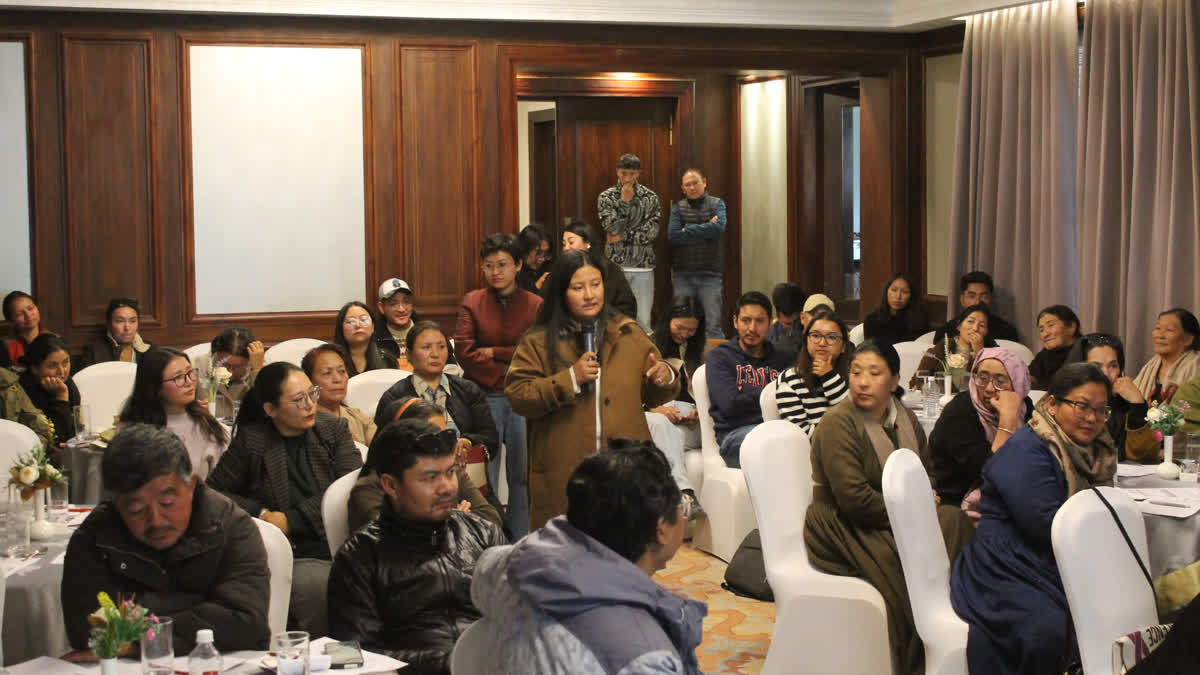Leh: A programme on 'Strengthening psycho-socio-legal response to domestic violence' was organised by the Department of Social and Tribal Welfare District Hub for Empowerment of Women, Leh, Mission Shakti today here.
Tashi Dolma, Director, Social and Tribal Welfare Department, Ladakh, said, “We have several schemes, including Mission Shakti, which focuses on empowering women. Raising awareness about domestic violence is also one of our key mandates. Although the Domestic Violence Act was enacted in 2005, many women remain unaware of their rights under it. Recognizing this, we’ve organised sessions with experts to address the social, legal, and psychological aspects of domestic violence."
Dolma further said that the survivors who have reported abuse have also shared their experiences in these sessions. "We plan to extend these awareness programs to villages and subdivisions, using women empowerment hubs to reach more people and foster understanding," she said.
Essar Batool, a professional social worker focused on gender and violence, discussed how violence often begins even before birth, with a societal preference for male children. She explained, “Patriarchy harms not only women but men too, restricting their emotional expression and creating a stigma around openly showing vulnerability.” She talked about gender roles that are imposed early, with boys given toy guns and girls provided with dolls. She highlighted the unfair division of labour in the home, highlighting gender inequality.
She emphasised the importance of creating a support network for survivors to help them break the cycle of generational trauma. She pointed out that, according to NCRB data, only nine cases of crimes against women were reported in Ladakh in 2020, with zero cases of domestic violence reported in subsequent years. She suggested that Ladakh's close-knit society, where ‘everyone knows everyone,’ contributes to the underreporting, along with the stigma, shame, and pressure to preserve family honor that often silences victims. Other barriers include lack of support from family or friends, denial of the seriousness of abuse, limited access to social and legal resources, fear of victim-blaming, and facing misogyny from authorities.
Batool highlighted the need for awareness on the Protection of Women from Domestic Violence Act (PWDVA) 2005 and she advocated for strengthening the role of NGOs, community-based interventions, and legal and institutional frameworks to create a safer environment for all.
